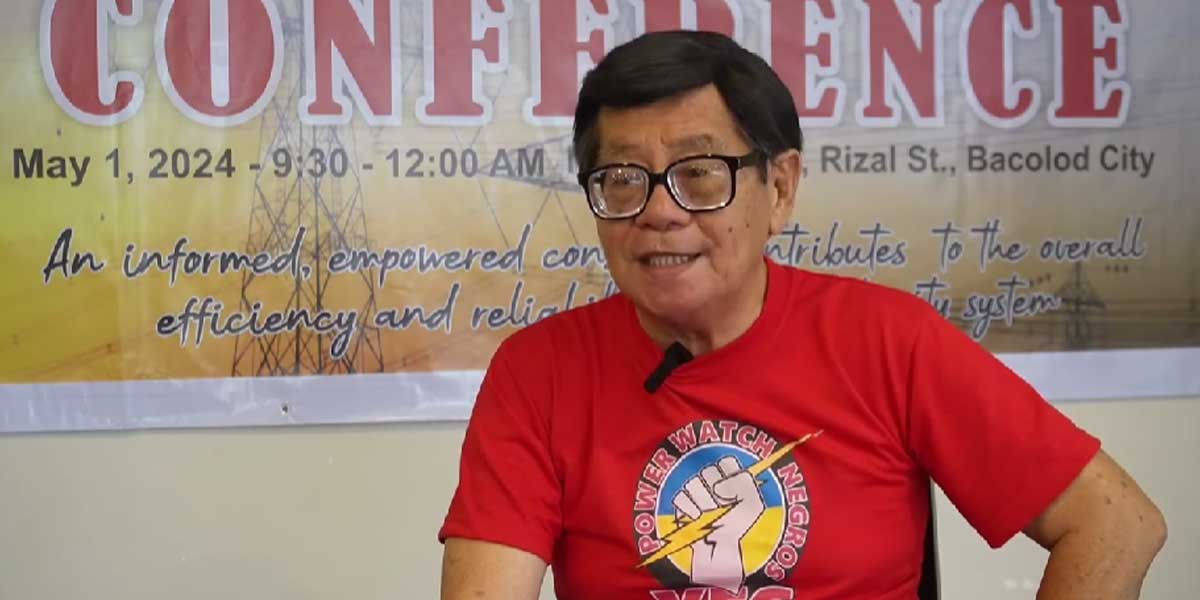 By Atty. Eduardo T. Reyes III
By Atty. Eduardo T. Reyes III
Being mortal.
This is a universal truth that most are in denial about. But the fountain of life is being drained away by the mounting deaths (if not life-threatening experiences) of the many around us who had been infected by covid-19.
For the spiritualist, life and death mean streaming in and out of paradise either one way or the other. While for the pragmatist, they are only a means of entrance and exit: you have to make the most of what’s in-between.
The recent All Soul’s Day which was celebrated last Monday 02 November 2020 was an oddity. Pre-covid-19 Halloween celebrations had always been a convivial atmosphere that brought about social-gatherings hosting a meeting among the living and the dead. But this Monday proved to be a different eerily silent affair. Governmental restrictions had caused not only for the living to avoid mass-gathering, but also to social distance from their dearly-departed for the time being.
And in less than two (2) months, a gloomy Christmas is in the offing. The season of giving and hugging this year will likely be dampened by the somber mood until the new year ushers into the major part of that year.
It used to be that life and death were opposites in the same way that night is anathema today and light is the other side of darkness. But now, the pandemic had somehow blurred the distinction or narrowed the gap.
In the legal realm, life and death are also treated as opposites.
The recent pandemic had been described as unprecedented in terms of the elusiveness of the character and treatment of the virus as well as its drawn-out transmissions and resurgence that baffle the experts and render governments panicky.
So, with the global cheerless mood exacerbated by the jumpy lockdowns, people are hard-pressed to keep their business dealings alive. How can negotiations be made when businessmen cannot hold meetings? How can contracts be sealed when there can be no shake of the hands? More importantly, how can the boss decide when he/ she is on lockdown either abroad or locally in his hometown?
Fortunately, the law allows for a person to appoint an “agent” to do things on his behalf in his absence. The legal term for the representative is: “attorney-in-fact” (who may or may not be a lawyer). While the person who appoints the agent is known as the “principal”.
The pertinent law on agency provides that: “By the contract of agency, a person binds himself to render some service or to do something in representation or on behalf of another, with the consent or authority of the latter.” (Article 1868, New Civil Code).
While the appointment of an agent may encompass almost any legal business dealing or transaction, it is commonplace in two (2) kinds of contracts, viz: 1)Commission agent to sell realty; and, 2) Real Estate Mortgage with Special Power for the Mortgagee/ Creditor to sell the mortgaged property at public auction out of court.
For these two (2) kinds of contracts, Article 1878 requires that both must be in writing and be contained in the very popular acronym known as: SPA- which of course stands for Special Power of Attorney.
The broker as attorney-in-fact/ agent
In sales of real property (ie, lands or condominium units), brokers abound. Normally weaponized by an SPA from the seller/ owner, the agent flashes this to the would-be buyers. But negotiations also succumb to the forces of nature. The stars could be aligned for the broker when the essential elements of timing and money concur. Thus he/ she bags the sale. Or the law of gravity could cause the talks to collapse and it would be a bad day in the office leaving the agent crestfallen. But interestingly, what if by the efforts of the agent, the deal that he/ she had started resurges and a second wave of negotiations come together but this time it is through a new representative appointed by the seller or by the principal himself? May the original agent be easily wiped out of the picture on the pretext that the deal was sealed “not through the original agent’s efforts” but by his substitute?
Before this question is answered, let us look at a concomitant situation.
The mortgagee/ creditor who extends a loan
Secured by a mortgage with special power to
Sell the mortgaged property at public auction in
Case of default, out of court
Unless the would-be buyer is really wealthy to be able to purchase real property in cash, those less affluent buyers would usually avail of a credit-facility known as real estate mortgage -or REM- that banking or financing entities offer. Through this scheme, the buyer can only make a down payment to the seller and then the balance of the purchase price will be financed through the mortgage as a credit-facility. This way, the buyer already takes possession of the house and lot or the condominium unit, while he/ she is paying the balance in installments. While for the mortgagee/ seller, should the buyer fail to pay the balance, he/ she can foreclose the mortgage and have the real property sold at public auction and the proceeds may then be applied to the unpaid debt plus all consequential costs. To truncate lengthy court proceedings in collecting the debt and running after the mortgaged real property when the loan sours, mortgage contracts infuse what is known as a “special power to sell mortgaged property” which means that the mortgagee/ seller/ creditor can sell the mortgaged property extrajudicially (or out of court) through the court sheriff.
But then again, under this second scenario, it would pique us to know what happens when the mortgagor/ debtor dies before the foreclosure proceedings. Can the foreclosure legally proceed despite the death of the mortgagor/ debtor who is the principal in this instance?
Before answering these questions, it is important to put things in their proper legal perspective.
Agency is a relationship that is founded on purely personal considerations. As a rule, the principal can revoke the agent’s authority at any time. And in cases of death by either the principal or the agent, the agency is automatically terminated pursuant to Article 1919 of the New Civil Code.
However, this rule admits of exceptions as stated in Article 1920 of the same code which provides for instances when the agency cannot be revoked by the principal just at any time.
These exceptions are:
- a) If a bilateral contract depends upon it
- b) If it is a means of fulfilling an obligation already contracted, or
- c) If a partner is appointed manager of a partnership in the contract of partnership and his removal from the management is unjustifiable.
- d) Agency coupled with interest.
Therefore, will the revocation of the SPA or death of the principal affect the broker’s commission in the first scenario, or the right of the mortgagee/ seller/ creditor to foreclose in the second case?
As to the broker, it has been held that he/ she is protected under the so-called “Procuring cause rule”. It means that “The agent is entitled to the stipulated compensation in the execution of the powers granted to him if the act of the agent is the procuring cause of the transaction. Thus, in an agency to sell, the agent is entitled to a commission if he is the procuring cause of the sale. This means that the sale must be concluded through the measures that the agent employed and the efforts that he exerted.” (Sanchez v. Medicard, G.R. No. 141525, September 2, 2005)
And early this year, the “procuring cause rule” was reiterated, thus: “In Medrano v. Court of Appeals, We held that “when there is a close, proximate, and causal connection between the broker’s efforts and the principal’s sale of his property – or joint venture agreement, in this case – the broker is entitled to a commission.
Here, as aptly ruled by the CA, the proximity in time between the meetings held by the respondents and Woodridge and the subsequent execution of the joint venture agreements leads to a logical conclusion that it was the respondents who brokered it. Likewise, it is inconsequential that the authority of the respondents as brokers had already expired when the joint venture agreements over the subject properties were executed. The negotiations for these transactions began during the effectivity of the authority of the respondents, and these were carried out through their efforts. Thus, the respondents are entitled to a commission.”
Roberto R. Ignacio and Teresa R. Ignacio doing business under the name and style Teresa R. Ignacio Enterprises v. Myrna P. Ragasa and Azucena B. Roa, G.R. No. 227896. January 29, 2020
On the same plane belongs the right of the mortgagee/ creditor/ seller, who was appointed by his/ her mortgagor/ debtor/ buyer as attorney-in-fact to sell the mortgaged property in case of default. He/ she, too, can proceed with foreclosure despite the death of the principal. Extrapolating further, it is submitted that if the mortgagor/ debtor/ buyer, is a corporation whose corporate franchise in its Articles of Incorporation had expired -which is the equivalent of death for a natural person- the same principle applies, that is, the mortgage can still be foreclosed even after the corporation had become defunct. Thus it was held that: “The authority to sell is not extinguished by the death of the mortgagor (or mortgagee) as it is an essential and inseparable part of a bilateral agreement (Perez v. PNB, GR No. L-21813, July 30, 1966).
The quintessence of life and law – even death- are magnified when they are in-step with society. The coronavirus is an enduring problem that chisels away at the core of humanity. Whether in business or personal dealings, we invoke the law with fairness and justice and with empathy. Amid this pandemic, it seems that the only way to drive the nightfall away is by humanizing ourselves. We can then harness that special power to lighten the dark- to turn night into day.
And then we appoint another to do the same. He/ she will pass it on down the road until the path to full recovery is achieved.
Because we are principals and agents of each other in this world.
(The author is the senior partner of ET Reyes III & Associates- a law firm based in Iloilo City. He is a litigation attorney, a law professor and a law book author. His website is etriiilaw.com).





















